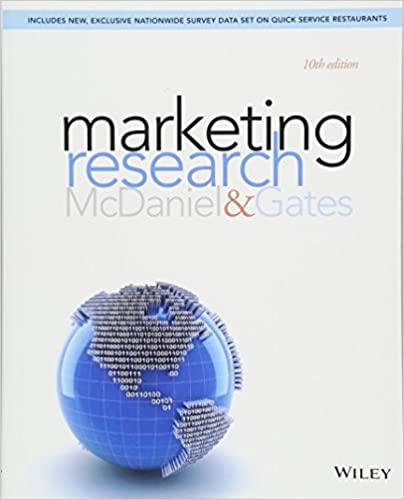Good researchers deliver accurate information. Great researchers deliver business insights. The challenge for many research managers is
Question:
Good researchers deliver accurate information. Great researchers deliver business insights. The challenge for many research managers is how to be perceived as insightful thinkers who are actively involved in corporate strategy sessions, rather than as pure “data heads” who have little more to offer than the basic information their studies kick out.
Let’s suppose you’re a market researcher with at least several years of experience and a track record of delivering pretty good presentations. Chances are, you may be reaching that point in your career where you want to be more than just a trusted conduit for research data—you want to have a larger, more strategic role. In short, you want an invitation to sit at the table where the business implications of your team’s research are discussed.
So what’s the best way to get an invitation to the party? Or to revitalize your career and really get noticed? The first place to start is with your presentations themselves—and realize that “pretty good” just isn’t good enough. In my opinion, as someone who has both sat through hundreds of presentations (including many, many painfully boring ones) and given hundreds of presentations to audiences ranging from middle managers to corporate boards, the best way to get a seat at the decision-making table is to deliver presentations that
(1) Are engaging and
(2) Actually provide meaningful, relevant insights to decision makers. In other words, if you want to play at the senior level, you have to give senior-level presentations.
Follow these guidelines to give more effective research presentations. Change perceptions So how do you craft a senior-level presentation—and get a more favorable response from top management? How do you change organizational perceptions so you’re viewed as something other than a faithful number cruncher? First, it’s important to understand that data is one thing, but its significance—or what it actually means for the business—is quite another. Many research presentations are simply too long, too academic and/or too conceptual.
They are data-intensive when they really need to be insight-intensive.
Questions
1. What does the author mean by “taking a risk”? What is the risk? What is the potential reward?
2. What do insights require? What don’t they require?
3. If you deliver a presentation with careful tables of data, really densely packed slides, ripe with all kinds of great information and impressive discussions of methodology, what effect will it likely have on your audience?
4. How can the presenter engage his or her audience?
Step by Step Answer:






